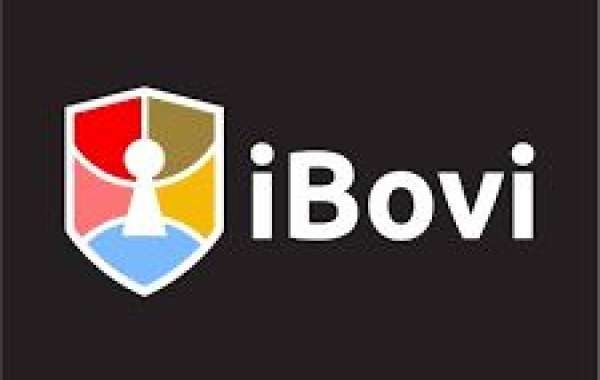Introduction
Cardiac diseases continue to be a leading cause of morbidity and mortality worldwide. To combat this global health challenge, the field of cardiac monitoring and cardiac rhythm management has witnessed significant advancements. Technological innovations have revolutionized the diagnosis, treatment, and management of cardiac conditions. This article explores the latest trends and developments in the cardiac monitoring and cardiac rhythm management devices market, highlighting the transformative impact they have had on patient care and outcomes.
According to the latest analysis conducted by Emergen Research, the global market for cardiac monitoring and cardiac rhythm management devices was valued at USD 32.60 Billion in 2021. It is projected to exhibit a compound annual growth rate (CAGR) of 6.8% during the forecast period. The market's robust growth can be attributed to the rapid adoption of cutting-edge technologies like the Internet of Things (IoT) and Artificial Intelligence (AI). An example of this is the release of an AI-based web tool by the Apollo Group of Hospitals on 28th September 2021. The tool, known as the Cardiovascular Disease Risk Score, utilizes the Microsoft Azure Platform and conducts a comprehensive survey. The algorithms generate an individualized risk score by considering various factors, including lifestyle attributes like diet, tobacco smoking preferences, and physical activity. This innovative tool, developed using a combination of applied AI and clinical expertise, utilizes a vast collection of retrospective data on health checks and coronary events. Its purpose is to predict and prevent heart disease by providing an accurate risk assessment to individuals.
Get Free Sample PDF Copy Of This Report: https://www.emergenresearch.com/request-sample/364
Growing Prevalence of Cardiac Diseases
The increasing prevalence of cardiac diseases, such as coronary artery disease, arrhythmias, and heart failure, has fueled the demand for advanced monitoring and management devices. According to the World Health Organization (WHO), cardiovascular diseases are responsible for approximately 17.9 million deaths annually, representing 31% of all global deaths. As the burden of cardiac conditions continues to rise, the need for effective cardiac monitoring solutions becomes paramount.
Technological Advancements
The cardiac monitoring and cardiac rhythm management devices market have witnessed remarkable technological advancements. Electrocardiography (ECG) has evolved from conventional 12-lead ECG to portable, wireless, and continuous monitoring solutions. Wearable devices, such as smartwatches and patches, now offer real-time ECG monitoring and heart rate variability analysis. These innovations enable early detection and diagnosis of cardiac abnormalities, facilitating timely intervention.
Furthermore, implantable cardiac rhythm management devices have undergone significant improvements. Pacemakers, for instance, have become smaller, more efficient, and longer-lasting. Advanced features, including adaptive rate control and remote monitoring capabilities, enhance patient comfort and provide healthcare professionals with valuable data for personalized patient management.
Remote Monitoring and Telehealth:
The COVID-19 pandemic has accelerated the adoption of remote monitoring and telehealth technologies. Cardiac patients can now benefit from continuous monitoring in the comfort of their homes, reducing hospital visits and minimizing exposure to infectious diseases. Telecardiology platforms enable healthcare providers to remotely monitor patients' vital signs, review ECG data, and adjust treatment plans accordingly. This paradigm shift in healthcare delivery has improved patient access, enhanced convenience, and optimized resource utilization.
Artificial Intelligence and Machine Learning:
The integration of artificial intelligence (AI) and machine learning (ML) algorithms has revolutionized cardiac monitoring and rhythm management. These technologies can analyze large volumes of patient data, identify patterns, and predict cardiac events with remarkable accuracy. AI-powered algorithms can detect subtle changes in ECG patterns, allowing for the early diagnosis of conditions like atrial fibrillation and ventricular arrhythmias. ML algorithms can also predict device malfunctions, optimizing device performance and reducing complications.
Market Growth and Future Outlook
The cardiac monitoring and cardiac rhythm management devices market is experiencing substantial growth. Factors such as the increasing geriatric population, rising awareness about preventive healthcare, and the demand for personalized patient management contribute to market expansion. Additionally, favorable reimbursement policies and supportive government initiatives drive market growth.
To get leading market solutions, visit the link below: https://www.emergenresearch.com/industry-report/cardiac-monitoring-and-cardiac-rhythm-management-devices-market
Looking ahead, the future of cardiac monitoring and cardiac rhythm management is promising. Continued technological advancements, coupled with the integration of AI and ML algorithms, will further improve diagnostic accuracy, treatment efficacy, and patient outcomes. Furthermore, the development of innovative, non-invasive monitoring devices and the expansion of telehealth services will enhance accessibility and patient convenience.
Conclusion
The cardiac monitoring and cardiac rhythm management devices market have witnessed significant advancements in recent years. Technological innovations, including wearable devices, remote monitoring, and AI-powered algorithms, have transformed patient care and management. These advancements allow for early detection, personalized treatment, and improved patient outcomes. As the prevalence of cardiac diseases continues to rise, the market is expected to








